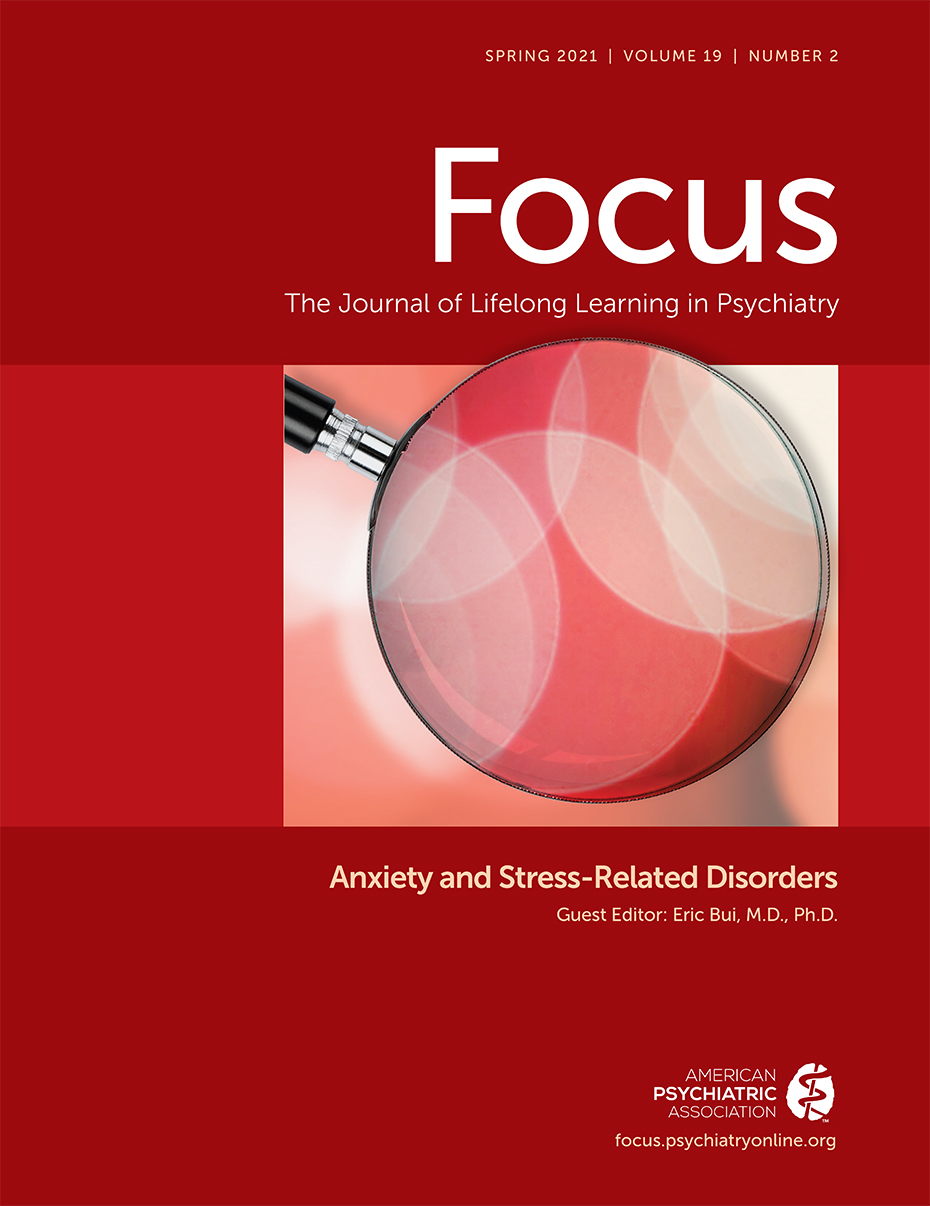Anxiety Treatment With Benzodiazepines
What is the role of benzodiazepines in treating anxiety today?
For this issue of Focus, I am asked once again to address the issue. I get this request a lot from journal editors, colleagues, and occasionally the media. I thought my recent Commentary in the American Journal of Psychiatry (1) might have closed the book on what I have to say, but the issue keeps arising. Now the U.S. Food and Drug Administration has added new boxed warnings (2), including the known risks of “abuse, misuse, addiction, physical dependence, and withdrawal reactions” to help “improve” their safe use. Of interest, the warnings do not address the consequences of failure to prescribe these agents to those who merit them and the paucity of effective alternatives that work by the same fundamental mechanism to effectively treat disabling anxiety as rapidly, as robustly, and for many in as sustained a way—a Hobson’s choice for sure, but a choice that a well-trained physician must make for the benefit of the patient.
Physicians use many treatments that have unwanted and potential risks yet may restore life and function to patients. If fear biology is analogous to the immune system to protect people from external threat, then acute and sustained anxiety is like an autoimmune disorder where the response is inappropriate, sustained, disabling, and associated with life-shortening consequences. The protective system is now punishing the person in the absence of a true biological threat. The dysregulated “protective” response becomes the biological threat itself. In a sense, the benzodiazepine is the prednisone for this autoimmune response to decrease “inflammation” and restore function, carrying with it, however, certain adverse effects and the need for a gradual taper when possible to avoid long-term consequences or withdrawal effects. Severe anxiety and chronic anxiety are not trivial but are viewed as such because many people can tolerate ordinary anxiety. Dismissing more severe forms is just another form of stigma against those who suffer psychiatric distress.
After my Commentary was published, I heard from grateful but beleaguered colleagues pleased for some support to take advantage of the mechanism of action of benzodiazepines on fear circuitry (3) to treat their patients. More poignant by far, however, was hearing from patients who felt terrified after a recent change in providers. The typical letter read as follows: “I read your article in the American Journal and will be sending it to my doctor. I have suffered from severe and frequent panic attacks and agoraphobia, and after I started on X, my life was restored. I have a new PCP who insists I get off X, and I am now back to being homebound and fear that I will lose my life that I had fought so hard to regain. I had been on X for 7 years and always took what I was prescribed and had no side-effects that I was aware of.” The doctor might feel a bit better, but the patient would be devastated.
If other treatments (such as antidepressants) work for a patient and there is not urgency, then other treatments and approaches could be tried before using a benzodiazepine. But the default option to prescribing a benzodiazepine for a patient with an anxiety disorder should not be “let the patient suffer because I fear I cannot manage the risks of these agents” or “someone might think less of me if I prescribe this drug.”
1 : Benzodiazepines: a perspective . Am J Psychiatry 2020 ; 177 : 488 – 490 Crossref, Google Scholar
2 FDA Requiring Boxed Warning Updated to Improve Safe Use of Benzodiazepine Drug Class. FDA Drug Safety Communication 09-23-2020. Washington, DC, US Food and Drug Administration, 2020. https://www.fda.gov/drugs/drug-safety-and-availability/fda-requiring-boxed-warning-updated-improve-safe-use-benzodiazepine-drug-class Google Scholar
3 : Anxiety and the neurobiology of temporally uncertain threat anticipation . J Neurosci 2020, 40: 7949–7964 Crossref, Google Scholar



